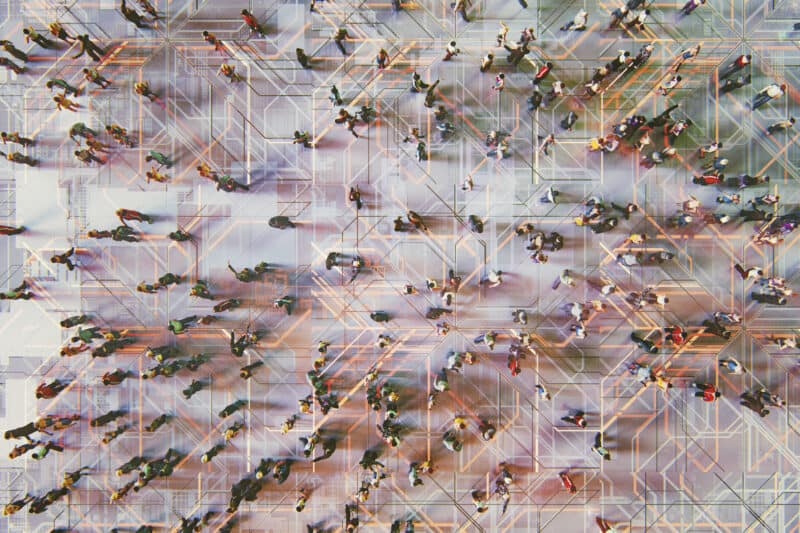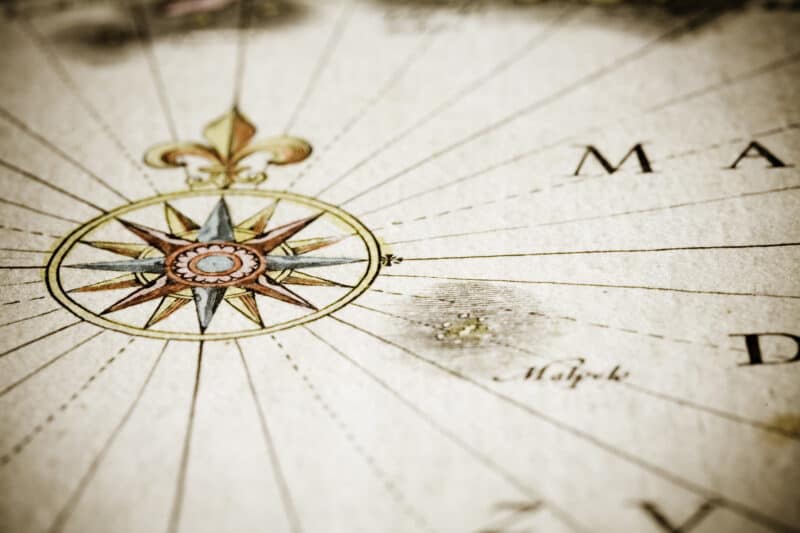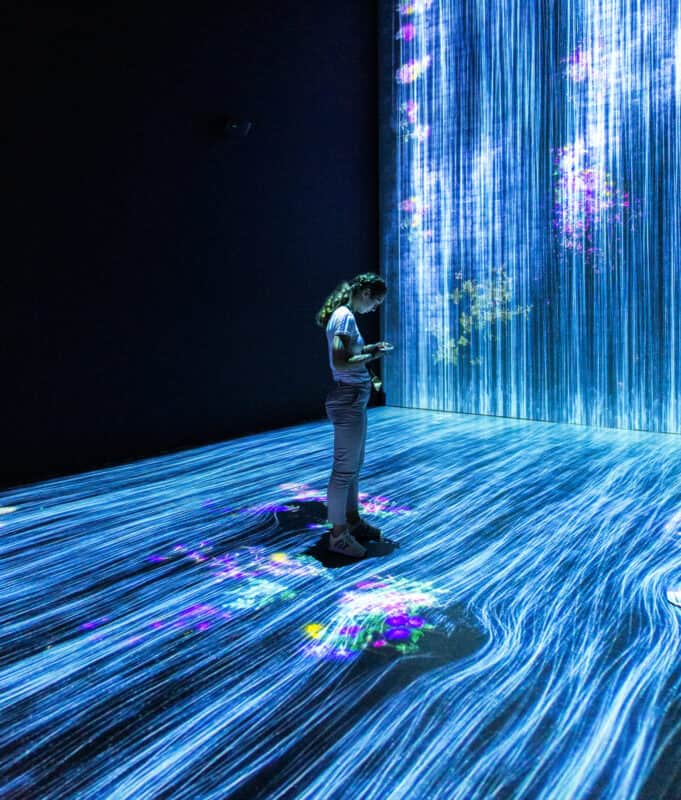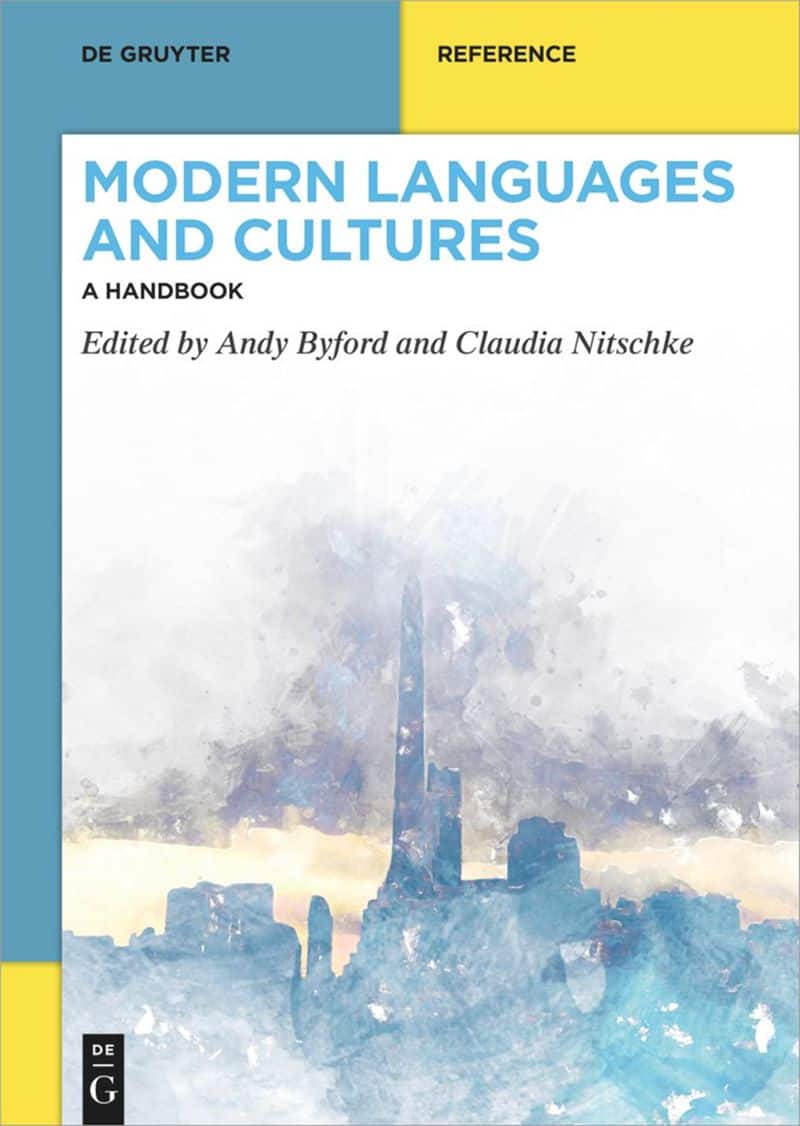Modern Languages in a Changing World: An Interview with Andy Byford and Claudia Nitschke
The field of Modern Languages explores nothing less than the fundamental questions of human existence. We spoke to Professors Andy Byford and Claudia Nitschke about the discipline's historical roots, current developments, and possible futures.
How do we produce knowledge? How do we present it? How can we better understand our societies, past and present? And, ultimately, what is it that makes us us? The study of Modern Languages tackles nothing short of these fundamental questions, exploring the very foundations of what it means to be human.
Moreover, the field is inherently dynamic. Artificial Intelligence tools, such as ChatGPT, have rapidly changed our perspective on language as something uniquely human. Social media have created new ways of reading and consuming information. Concurrently, emerging forms of scholarship are reshaping the way we approach Modern Languages.
We wanted to learn more about the discipline in an ever-changing and increasingly digital world, so we sat down with Professors Andy Byford and Claudia Nitschke from Durham University, UK. Andy Byford holds the position of Professor of Russian Studies, while Claudia Nitschke is a Professor of German at Durham’s School of Modern Languages and Cultures. Both have authored numerous publications and are serving as editors of an upcoming handbook on Modern Languages and Cultures, to be published by De Gruyter in 2024.
Alexandra Koronkai-Kiss, Editorial Communications Manager at De Gruyter, conducted the interview, which is also available as a video and podcast.
VIDEO
You are currently viewing a placeholder content from YouTube. To access the actual content, click the button below. Please note that doing so will share data with third-party providers.
PODCAST
You are currently viewing a placeholder content from SoundCloud. To access the actual content, click the button below. Please note that doing so will share data with third-party providers.
You can find our podcast also on Spotify and Apple Music.
Transcript
Alexandra Koronkai-Kiss: Modern Languages as a discipline has arguably always had a lot to say about human existence. Language is traditionally associated with being human and understood by many to construct the very basis of civilization. Could you provide some key findings in the field of Modern Languages that you would say help us to understand what it means to be human?
Andy Byford: The academic field that we call Modern Languages is, in a most fundamental way, concerned with the question of what it means to be human. A philosophical text that I personally see as seminal in the history of this discipline is the “Treatise on the Origin of Language” by the German Enlightenment philosopher Johann Gottfried Herder, which was published in the late 18th century. In this treatise, Herder starts off by the axiom that the human being is the creature of language. The question is, what does that actually mean? Modern Languages, of course, study humanity, but they don’t necessarily study empirical humans as much as what makes humans human.
So, what is it that makes humans human? I would say, one of the things is meaning – the capacity to create, encode and decode meaning, to live in a meaningful way, to project meanings on things, to derive meanings from something else. I think that is where the idea of language actually comes from. When Herder says that the human being is the creature of language, he doesn’t necessarily have in mind concrete languages or some kind of abstract capacity for language. Rather, he uses it in a much broader, almost metaphorical sense to refer to an entire bundle of codes, encodings, and meanings that are inevitably encoded. That is, I think, very much what we study.

“In the wake of climate change and other crises, we’ve begun to see ourselves as part of larger, global and planetary contexts and ecosystems that are beyond individual or national control.”
Claudia Nitschke: I think Modern Languages have become more critical of the notion of human exceptionalism, so what makes humans human in a sense, and more aware of the interconnectedness of all life on the planet. Especially in the wake of climate change and other crises, we’ve begun to see ourselves as part of larger, global and planetary contexts and ecosystems that are beyond individual or national control. Life in the Anthropocene, which is the epoch in which human activity has become the most dominant influence on the environment, is proving quite challenging for human beings and we have to find out more about the place for humans in these increasingly complex enmeshed networks.
Also, language as the unique human feature has become more controversial. Especially in the digital and environmental humanities, one encounters transhuman or even posthuman forms of language –think of language produced by artificial intelligence or Eduardo Kohn’s notion of a “sylvan” language, a language shared by trees.
I think there is a conspicuous shift from the focus on human difference towards a notion of commonality, similarity, and interconnections. These interconnections tie human beings to social and cultural environments but also to non-human nature and even things. Bruno Latour argues in his famous network theory that everything in the social and natural world – also objects – exists in constantly shifting networks of relationships. These dynamic ecologies have come to the fore in the past decades as a major concern and topic in Modern Languages.
“Language as the unique human feature has become more controversial. Especially in the digital and environmental humanities, one encounters transhuman or even posthuman forms of language.”
AKK: One trend that we can observe in scholarship, and also more generally in today’s world, is globalization and increasing interconnectivity. Modern Languages as a field was born in a very different context, that of nation building, often thinking in confines such as language or country – but it is now moving above and beyond, exploring the world through very different lenses such as the global or planetary. What do you think we can learn from these new perspectives that we couldn’t before?
CN: There are certainly two sides to this medal. As you pointed out, nationalism was a prominent driving force in the 18th and 19th centuries when scholarly disciplines as we know them today started to emerge. This went hand in hand with the ongoing systematic exploration and colonization of the world, which was being measured and categorized. You might know Daniel Kehlmann’s novel “Measuring the World” about Humboldt and Gauß that fits into that period.

Modern languages and cultures are an interesting case here as they are closely associated with the traditional field of philology. In this sense, they also inherited a complicated colonial legacy, as Siraj Ahmed argues in his book “Archaeology of Babel: The Colonial Foundation of the Humanities.” He shows how different cultural traditions suddenly became very selectively text-based and standardized and how other oral and performative aspects of certain cultures were obliterated. Ahmed suggests that philology reinforced colonial hierarchies and he would go as far as claiming that it still does. So, the conceptualization of different national philologies was based on a selective understanding of traditions and materials seen as worthwhile from a distinctly European angle.
At the same time the world proved intrinsically connected then as well. If you analyze German-language literature in the 18th century, you always look at complex intertextual networks, which were in many ways global as they also incorporated non-western traditions. Goethe first used the concept of “world literature” at the beginning of the 19th century to describe the international circulation and reception of literary works in Europe, including non-western texts.
We are becoming more and more aware of this connectivity, but also more mindful of the exclusivity of certain traditions. That’s one of the reasons why current research carefully evaluates and includes available texts as artifacts which weren’t part of the canon but were marginalized and forgotten. The concept of transnational Modern Languages stands for such an awareness and a nuanced transnational approach to these questions.
“Language, apart from connecting us, is also in many ways a divider of humanity.”
AB: It’s certainly the case that Modern Languages as a discipline were historically beholden to particular patterns of humanity’s division and inequality. They have also been prone to follow these patterns of division into nations or empires in a way that might not have always been as self-reflective. One of the tasks that we are facing today is to try and rethink what it means to be dependent on these historically contingent ways of structuring the world and humanity. One reason for this is that language, apart from connecting us, is also in many ways a divider of humanity.
One of the problems that Modern Languages face is to reconcile the study of cultural and linguistic specificity, but also to place that specificity in the global world. That is not an easy thing to do at all because you want to provide a deep knowledge of the specific without excluding the bigger picture. A solution that we are working through as a discipline today is to try and think beyond the binary of the specific and the general, and to transform that through a model of multiplicity and interconnectedness.
AKK: Another trend that is coming to the fore in academia and in Modern Languages is increasing interdisciplinarity. Indeed, both of your research interests encompass crossovers to vastly different fields, be it medicine, law, environmental studies, psychology, or cognitive sciences. How do you think bringing together these different fields helps us in our pursuit to better understand the world around us?
AB: There is something to be said about Modern Languages as a particular kind of disciplinary cluster that is different in many ways to let’s say history or anthropology, where there’s perhaps a clearer disciplinary sense. Many people worry that Modern Languages lack disciplinary specificities, and that it’s not patrolling its disciplinary boundaries enough. My own view is that, on the contrary, this relatively lax attitude is precisely what enables people in Modern Languages to assemble as a diverse group that can work with different overlapping disciplinary identifications.
We think of disciplines as not just separated territories but as embedded affiliations and frameworks, which can work with each other and create something new because they are brought together. I think Modern Languages lend themselves really well to that model. That’s something we need to champion and cherish rather than be embarrassed about.
AKK: It’s really interesting that you point out there’s a mutual impact: Modern Languages is influenced by collaborative research with other fields, but it also works the other way around. Claudia, is there any particular research area or project that you can think of in that context?
CN: I work on legal phenomena as portrayed in literary texts, and you can definitely find a greater flexibility and openness in literary documents than you might find in historical documentations about the same time. Literary texts explore the paradoxes, the unchosen roads of history in many ways.
“I think that the openness and compatibility with other subject areas are a distinct advantage of Modern Languages.”
I think that the openness and compatibility with other subject areas are a distinct advantage of Modern Languages, as Andy has already highlighted. They can serve as a hub that connects different scholarly and scientific fields but also different cultural perspectives. What I would like to add is that the artifacts, sources, and objects with which Modern Languages engage do reflect the world and its complexity. It’s therefore not surprising that diverse approaches and methodologies unlock different aspects of the materials we work with.
Maybe a further related question is: how can we employ a comparative perspective on different world traditions in an attempt to overcome Eurocentrism? Modern languages and cultures have been working on questions like these for a long time, and they can help formulate a collective response to the challenges of the 21st century even when they are not concerned with contemporary materials at all. Currently I’m working on the correlation of property and nature in the 18th century in literature, and one can clearly show that there is no intuitive, natural, universal understanding or givenness of social core concepts such as property.
This specific openness provides a platform from which we can envision different switch points in the past as well as different futures to challenge and rethink the seemingly natural hierarchies and power structures in place.
AKK: Speaking of the future, one thing that undoubtedly shapes the way we live today and we will live in the foreseeable future is technology. In recent years we’ve seen the rise of generative artificial intelligence which can produce all sorts of content such as text, images and video. This raises all kinds of questions about the formation and consumption of knowledge and culture. How do Modern Languages help us to make sense of this new, very different world and the enormous changes we’re experiencing today?
CN: Many of these technological innovations concern the very premise to basic forms of communication. For example, the way we read and make sense of information is affected by the Internet and how we take in information online. Think of hypertext, which means online documents that include links to other documents. They require different reading patterns as there is no linear way through the information and readers find their own path through the interconnected documents. As human brains are rewired by repeated tasks, online reading and hypertext reading have changed the way we read, and they often compromise our close reading skills as well.

Katherine Hayles, an expert in the field of the digital humanities, has pointed out that we need to completely rethink reading and how it might work in an increasingly intermedial world where words are combined with sounds, animations, films, graphics and images. But she also suggests that literary studies can aim for a novel disciplinary coherence by teaching different forms of literacy. That means not only reading books, but also reading online across a diverse range of media.
“Reflections on how we read and comprehend complex information in the digital age can raise awareness and help identify deficits that need to be addressed and reckoned with.”
I think being able to read and think through information consistently and critically is an important skill for citizens and democracies. So, reflections on how we read and comprehend complex information in the digital age, as provided by Hayles, can raise awareness and help identify deficits that need to be addressed and reckoned with.
AB: The transformation in technologies that you’ve mentioned can be interpreted in different ways. On the one hand, it is creating a new form or space, a medium of meaning creation, social interaction and cultural creation. It’s a new phenomenon that needs to be addressed by scholars who need to apply preexisting methodology and develop new ones to cope with differences of medium and the culture that is generated. We have colleagues who are now specializing not in literary texts but in social media interactions, for instance. There’s definitely methodological innovation within the discipline in order to tackle this increasingly dominant cultural form.
But I had the impression that you also sought to address the question that you started off with, namely in what way this technology might be transforming what it means to be human. We might argue that it’s not necessarily that the principles are radically changing, it’s just that the technology is changing, and human beings have been made by technologies from the word “Go” – it’s just that the tools were different. And now these new tools will transform what it means to be a human being, yet again, in new ways. It’s still early days to say what will happen. The technologies are moving very rapidly, often in unpredictable ways. I slightly hesitate to predict the future at this point.
CN: Indeed, the notion of transhumanism is one of the budding areas in Modern Languages as well. Even though we have encountered different media revolutions in the past, the question is really, is this one different? Is the plasticity of the brain affected differently by new technologies? As Andy said, it’s very hard to say at this point what it will mean for us as human beings.
AKK: I’m certainly very excited to see where this journey takes us. Thank you very much for this insightful and very stimulating conversation!
[Title image by Marco Piunti via gettyimages]
